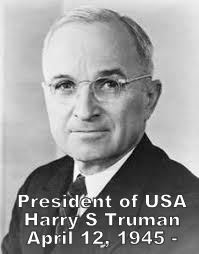For most, the future looked bright with promise proclaiming better days ahead. They were to be known as the Roaring 20's. New styles of music, dancing, the flappers, dress styles, and breaking away from the expectations of the pass brought new freedoms, new experiences, and new money. All was grand it appeared by many. The grandeur, however, was supported by false hopes, foolish expectations, and financial speculations led by a few.
The 1920's grandeur came crashing down as the greed of mankind began to be revealed once again. On October 24, 1929, later known as “Black Thursday” a large group of nervous investors began selling overpriced shares. With 12.9 million shares traded that day, the stock market crash that some had feared happened at last.
The panic had only begun. Nearly 16 million shares were traded after another wave of panic swept Wall Street five days later, on October 29 or “Black Tuesday”. Millions of shares ended up worthless, and many investors were wiped out completely. Some actually jumping to their death.
It would hit the "common man" as banks had to close causing people to discover in dismay their life savings were gone. They were penniless and soon many were standing in long lines at "soup kitchens" as thousands lost their jobs in the era that came to be known as the "Great Depression".
The Great Depression rippled across the great oceans causing countries across the world to feel the pain of empty stomachs; their dreams crashed upon the rocks of despair. Large groups of people felt their plight was caused by others. This opened the door for "false saviors" to come upon the scene.
Playing on the heartaches of these people and wanting to blame others for their plight, Mussolini of Italy, Hitler of Germany and others grabbed the opportunity to make statements and promises to satisfy the masses as they schemed to suffice their own greed of power, land and retribution. Another war was on the horizon.
Back in the United States in the small country town of Gorham, Maine, was a family of seven. The parents were Frank and Nina Knight. Their children were Charles, Waneta, Flavilla, Eugene and Helen. Even before the Great Depression this family struggled to make ends meet. However, with determination, hard work and faith in God they survived.
 |
| The young Knight family |
 |
| The Knight children in the 1970's |
Frank Knight planted his garden and sold his vegetables and strawberries at the road stand and worked at a local mill. Nina, his wife, was industrious with knitting and making broaches from butterflies and delicate flowers. The children would work at local canneries, cleaning homes, working on farms. Anything to help the family.
 |
| Frank and Nina Knight |
 |
| The Knight Homestead Gorham, Maine |
Across the "pond" trouble was brewing by the end of the 1930's. Germany struggling with its own depression and the inner struggle of wanting to gain back its spotlight on the stage of nationalism and recognition began to look at a rising star known as Adolph Hitler. Though short and at first unassuming, Hitler had a charisma and knew how to play on the emotions of his country men.
Even leaders of other countries considered him bright and a man that could help his struggling country of Germany. When he became bolder the western countries, such as, Great Britain and France considered diplomacy and began thinking maybe the Treaty of Versailles had been too harsh. Appeasement at all cost was the louder cry than the possibility of another war.
Hitler had them in his hypnotic voice and charisma. By 1938, Hitler had grabbed Austria and Czechoslovakia. However, when he with the help of Russia took over Poland a new war began, known today as World War II. Soon other countries began to take sides but the United States with their Isolationists remained out of the war. President Roosevelt of the United States did use behind the scene tactics to aid Great Britain. Many quiet meetings occurred between the United States and Great Britain laying down a frame work if the United States ever did enter the war.
United States did enter the war but by the actions not of Germany. Japan attacked Pearl Harbor on December 7, 1941, and the United States of America was at war. First with Japan but quickly with Germany and Italy too.
Soon, back in Gorham, Maine, a decision is made by my 27 year old uncle. My uncle, Charles David Knight, will enlist in the military December 1942 and will enter boot camp in the US Army at Camp McCoy in Wisconsin. Here he will become a soldier of the 2nd Infantry Division and will write 86 letters from Camp McCoy before crossing the Atlantic and into the European Theater of Operations. This blog will share those 86 letters and give us an inside look of a soldier preparing for war.
 |
| Lining Up to Sign Up |
WORLD WAR II LEADERS
ALLIES
AXIS
















